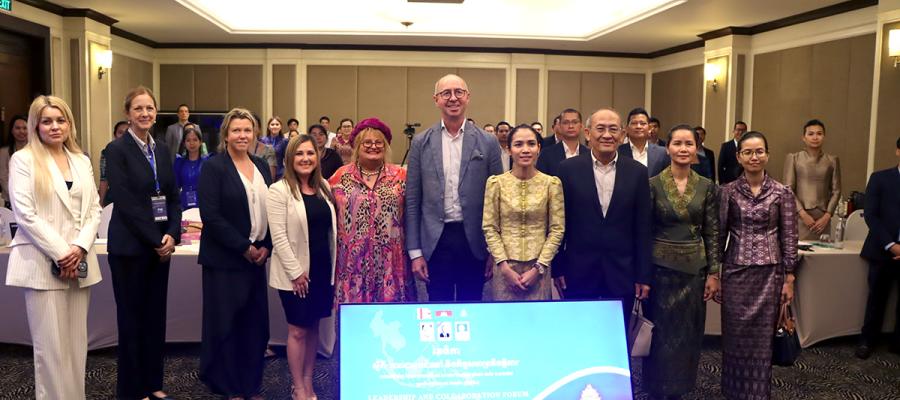If you are interested in partnering with us, please get in touch. Using P4I's flexible, innovative tools and diverse global expertise, we are confident we can design a response that is tailored to your needs.


In Cambodia, women remain significantly underrepresented in leadership roles within legislative and executive bodies. Only 10.7% of ministerial positions are held by women, with no women in senior ministerial roles. Women’s leadership is crucial to inclusive decision-making, and their underrepresentation limits diverse perspectives in infrastructure governance.
In response, Cambodia’s Ministry of Public Works and Transport (MPWT), in collaboration with P4I, has taken meaningful steps to support women leaders in the infrastructure sector. This partnership, including work with MPWT’s Techo Sen Institute (TSI), aims to foster both institutional and individual change towards greater gender inclusion, a key pillar of P4I’s approach to supporting infrastructure in the region.
This past week, we marked a significant milestone by celebrating the completion of the first phase of the Women in Leadership Program in Phnom Penh, Cambodia—highlighting the progress made towards empowering women in the sector.
Building Networks and Skills
The collaboration between P4I and MPWT has sought to advance gender equality and strengthen leadership through two initiatives:
At the recent closing event of the Cambodia Women Mentorship Scheme, representatives from MPWT, the Australian Embassy, P4I, the University of Melbourne, and participants gathered to reflect on the journey. The event, attended by H.E. Sun Chanthol, Minister of Public Works and Transport, highlighted the dedication of mentors and mentees to foster women’s leadership.
Real-World Impact
A key achievement of the program has been the development and implementation of Re-entry Action Plans (REAPs) by mentees. These plans enabled participants to focus on practical projects that could directly improve processes within their workplaces. The stories shared by mentees demonstrated the tangible impact of their new skills—enhancing productivity, fostering gender equality, and improving infrastructure governance.
Looking Ahead
This mentorship program is just the beginning of ongoing efforts to enhance women’s leadership in transport. P4I remains committed to supporting Cambodia's goals for sustainable development and gender equality. Such initiatives are critical to expanding women’s roles in leadership and building a more resilient, inclusive infrastructure landscape.
The success of this initiative underscores that achieving gender equality requires intentional efforts from leadership to create opportunities for change—empowering individuals and enhancing the entire infrastructure sector for future generations.
If you are interested in partnering with us, please get in touch. Using P4I's flexible, innovative tools and diverse global expertise, we are confident we can design a response that is tailored to your needs.
